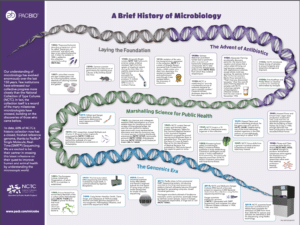As the world faces an unprecedented pandemic caused by a novel coronavirus, the scientific spotlight has shone brightly on infectious disease research. And although interest in Public Health England’s (PHE) Culture Collections is often focused on its historical cultures, its relevance in our modern world has never seemed sharper.
The National Collection of Pathogenic Viruses (NCPV) has been helping scientists from around the world address the current history-making infectious disease event. It is also anticipating future outbreaks, and building collections of pathogenic viruses to aid research into potential threats to human health.
“The question of which virus will be next to make the jump from relative obscurity to frontpage news is important to ask, but difficult to answer,” wrote PHE Lead Virologist Barry Atkinson in an NCPV blog post. “One group has shown a propensity to cause large outbreaks after decades of apparent inactivity or low-level circulation – the arthropod-borne viruses (arboviruses).”
While viruses have dominated headlines in 2020, bacteria have also driven epidemics and outbreaks, whether through community spread, in hospitals, or in our food and water systems. In fact, the majority of the microorganisms in PHE’s culture collections are bacteria, dwarfing the number of viruses and fungi.
Currently celebrating its 100 year anniversary, the National Collection of Type Cultures (NCTC) continues to remain highly relevant, recently releasing new antimicrobial resistance reference strains and resources.

Most recently, when the NCTC decided to expand their collection to include genome sequencing information, PacBio Single-Molecule Real-Time (SMRT) Sequencing was the technology of choice. Starting in 2014 and in coordination with the Wellcome Sanger Institute, NCTC created reference quality genomes for 3,000 bacterial strains. Professor Julian Parkhill, who initiated the project while he was at the Wellcome Sanger Institute, stated, “If you’re trying to generate reference genomes that are going to be valuable to as many people as possible, with as much information in them as possible, then Pacific Biosciences has the edge in terms of generating more complete data.”
Released four years later, the collection includes several of the most important known drug-resistant bacteria, such as tuberculosis and gonorrhoea, and some varieties of historical significance, such as a dysentery-causing Shigella flexneri isolated in 1915 from a soldier in the trenches of World War 1, and a sample from the nose of penicillin discoverer Alexander Fleming.
More than 60% of NCTC’s historic collection now has a closed, finished reference genome, assembled from PacBio sequencing.

“Combining sequences, strain metadata and links to other resources in the public domain will ensure that this e-resource provides a unique comprehensive source of data to underpin microbial research, and improve the provision of diagnostics and public health interventions for medically important bacteria and viruses.”
Learn more about the historical NCTC collection in this case study and microbial whole genome sequencing on PacBio systems.
October 8, 2020 | Microbial sequencing methods